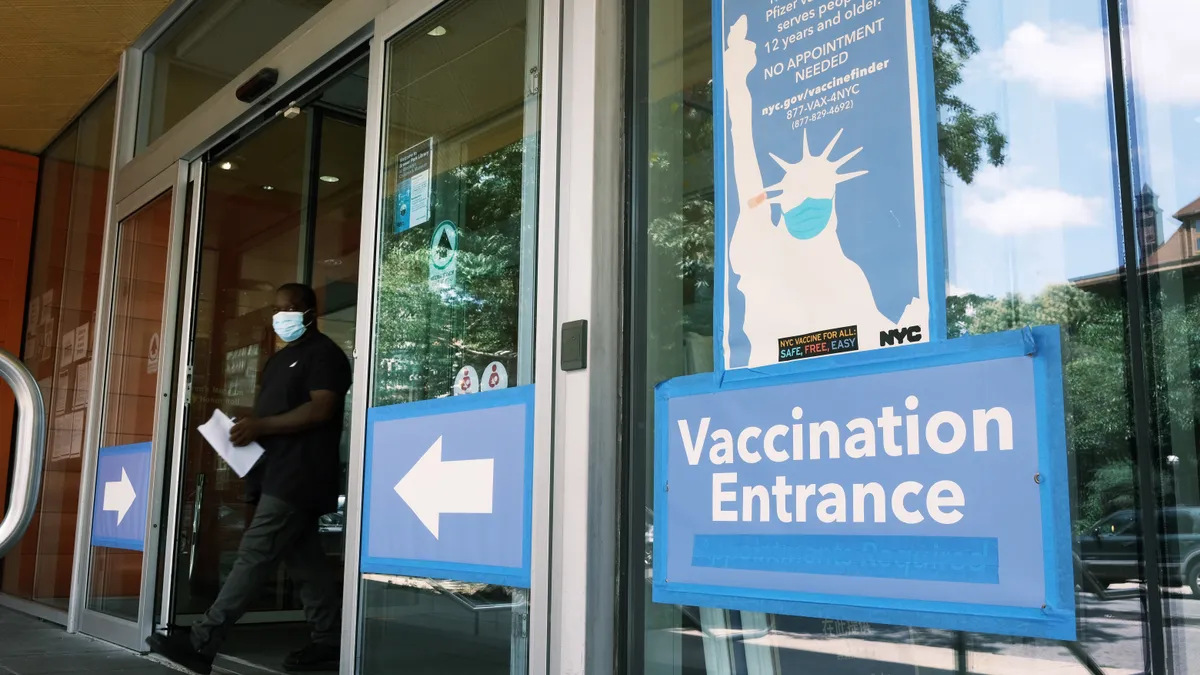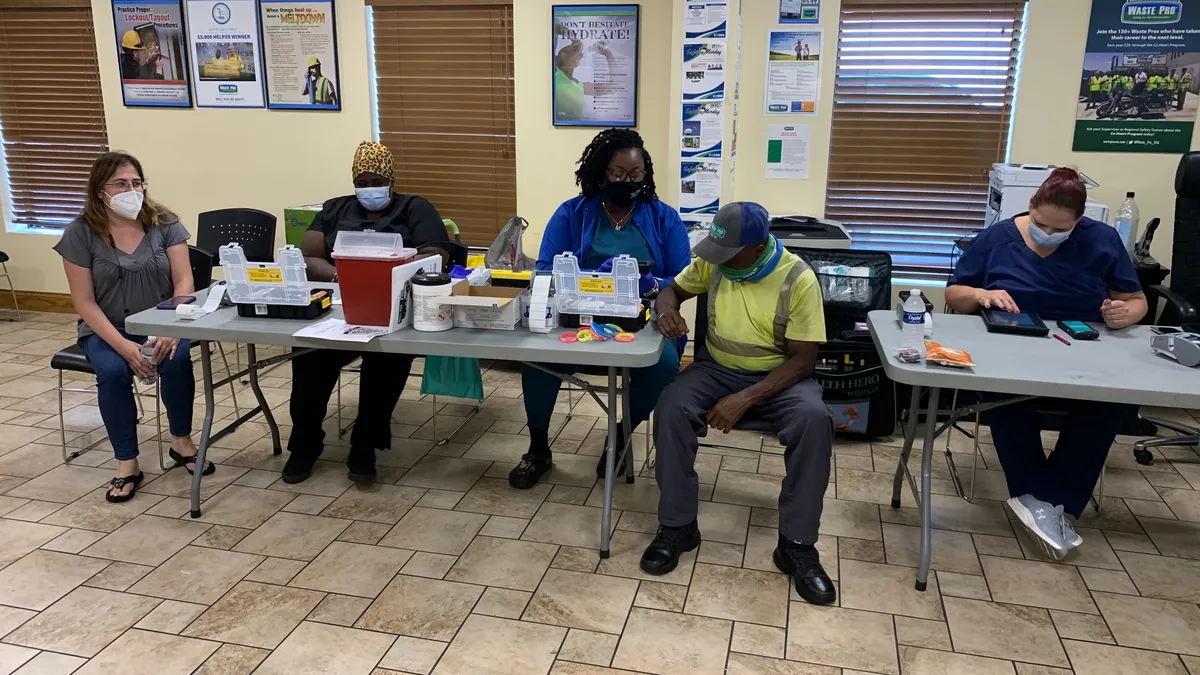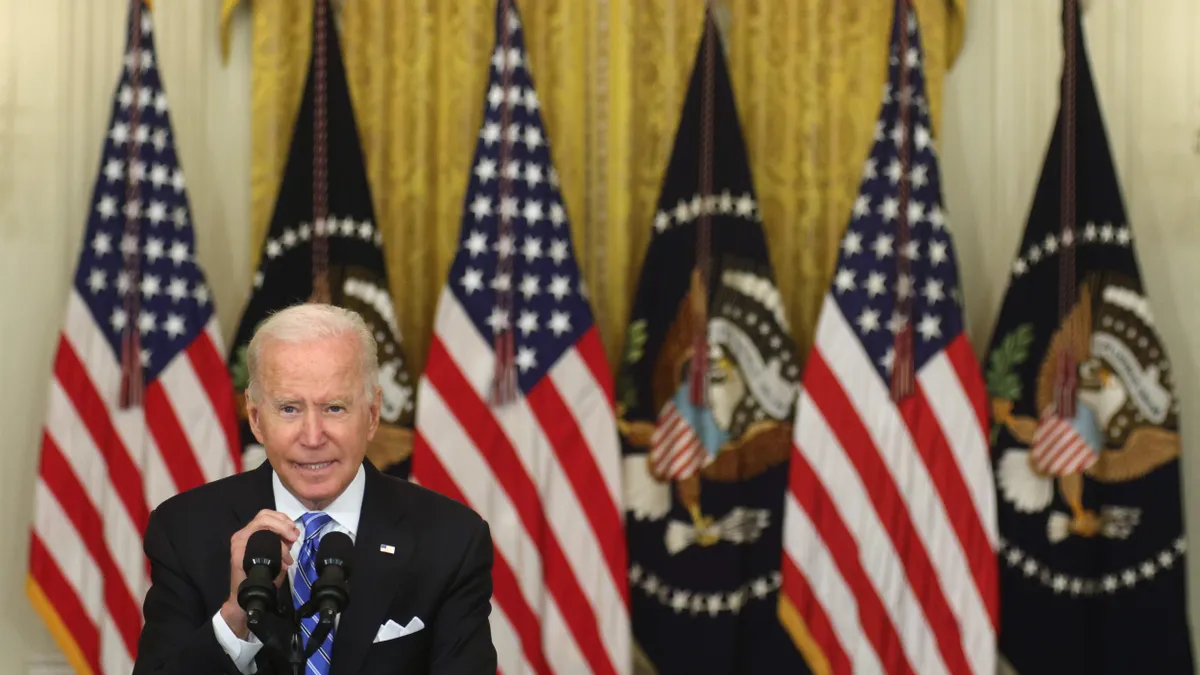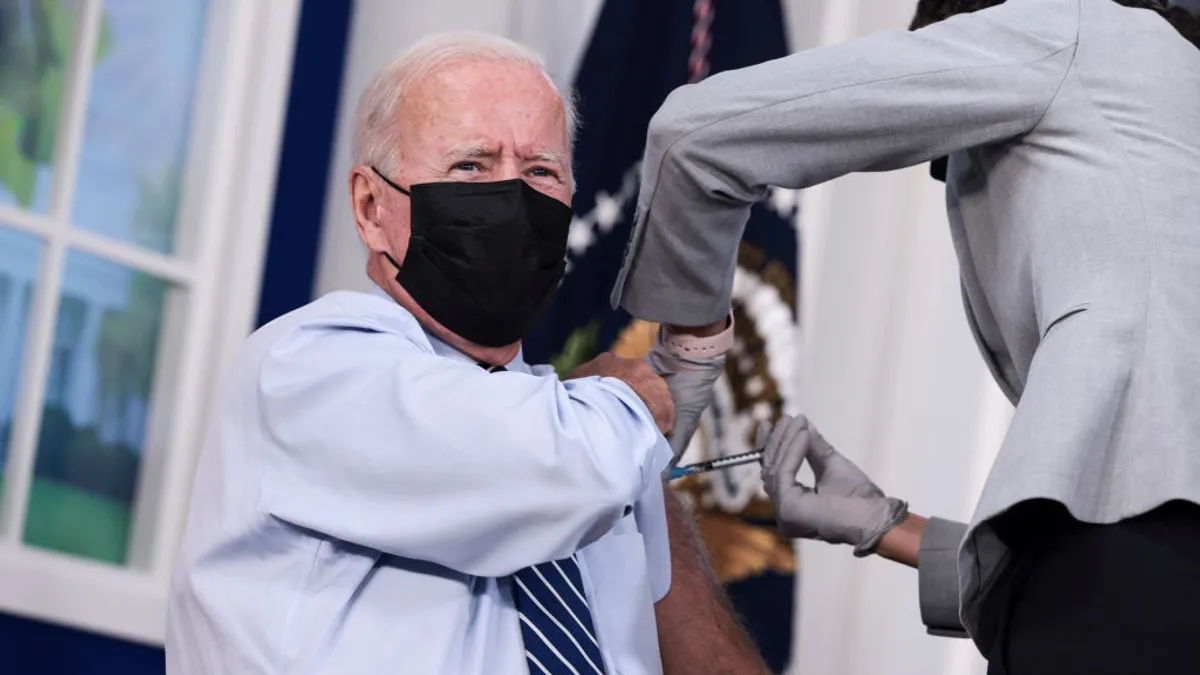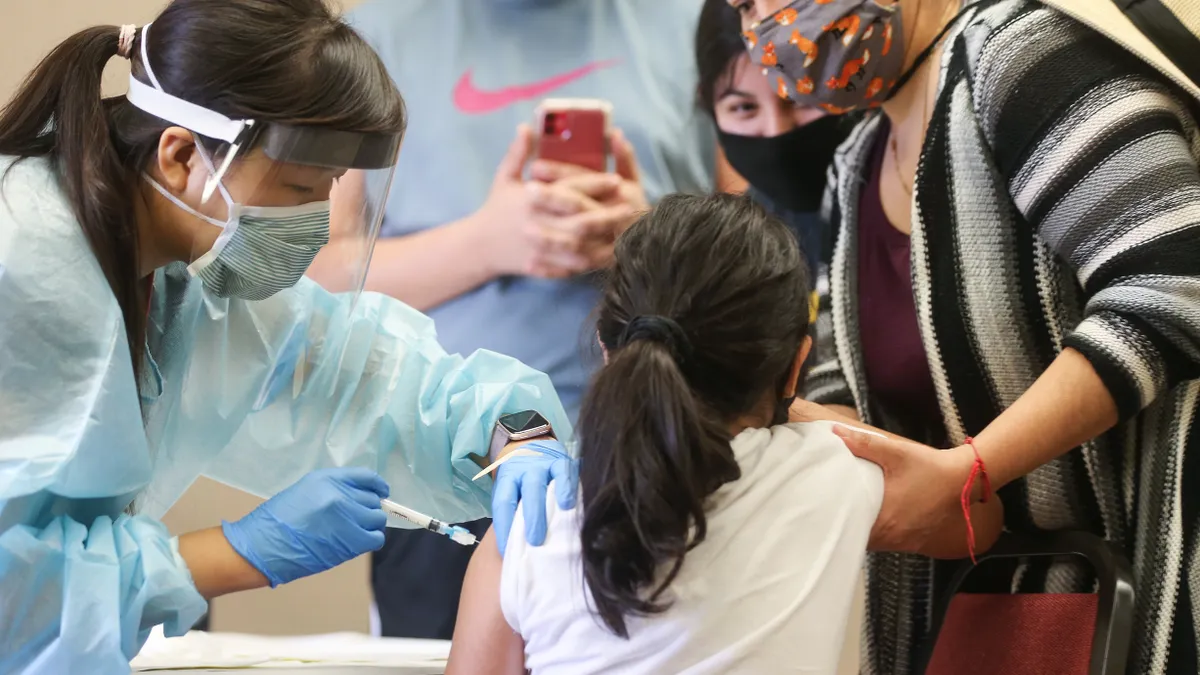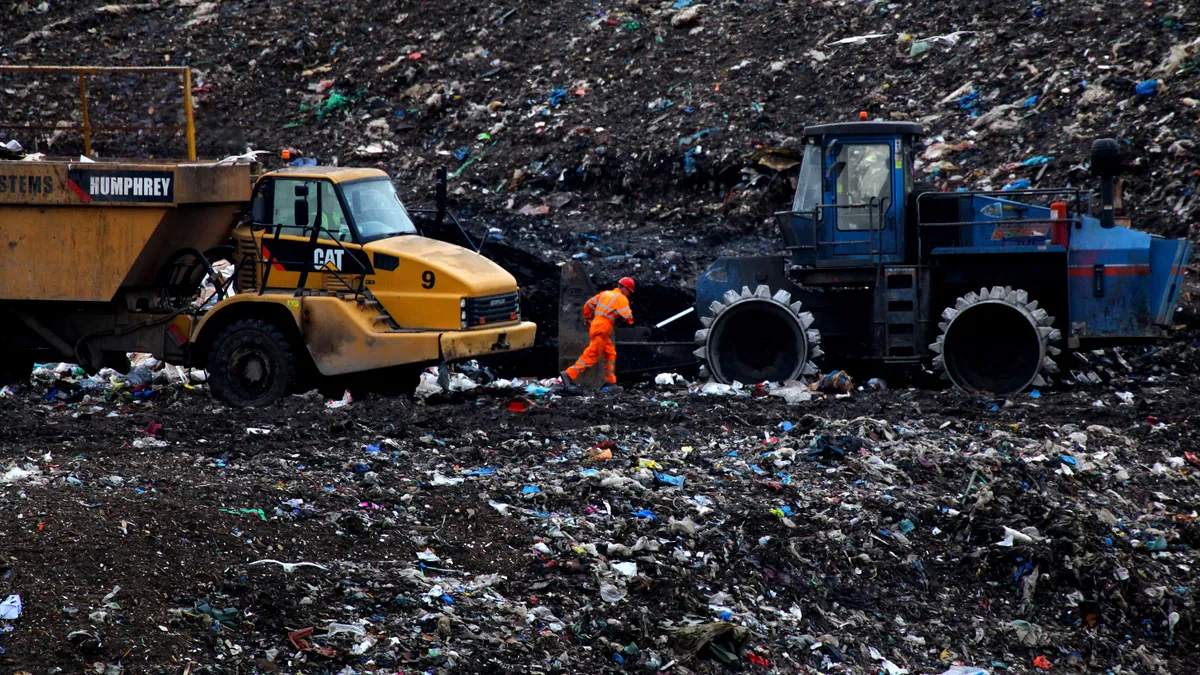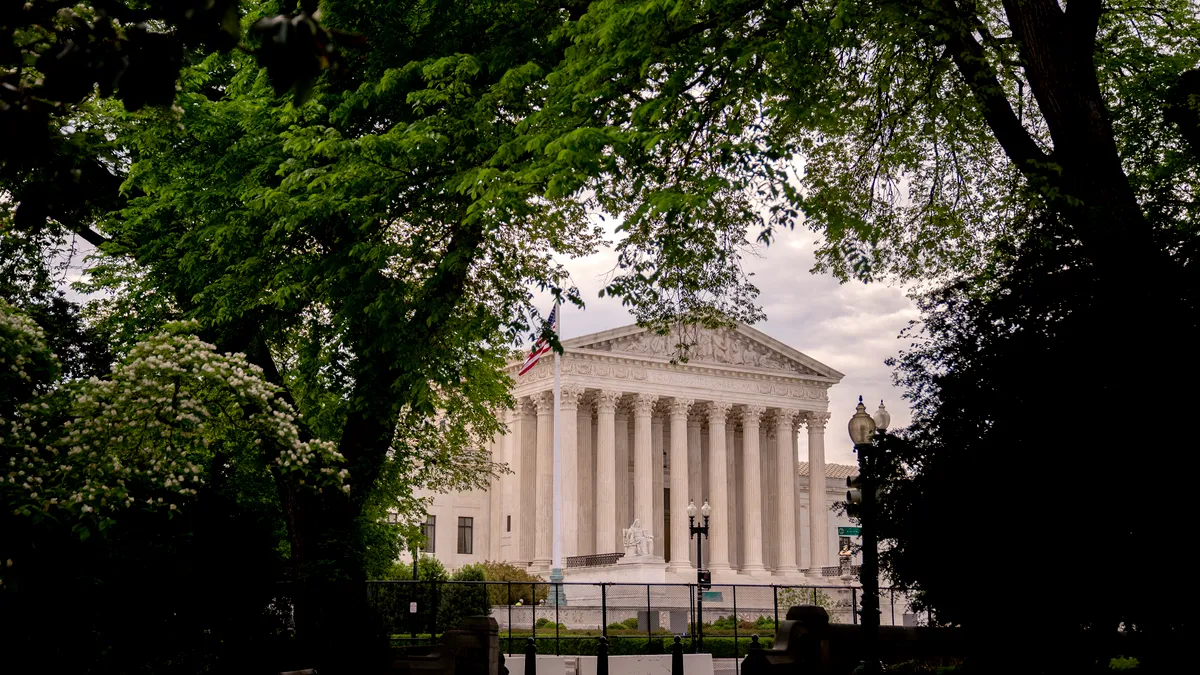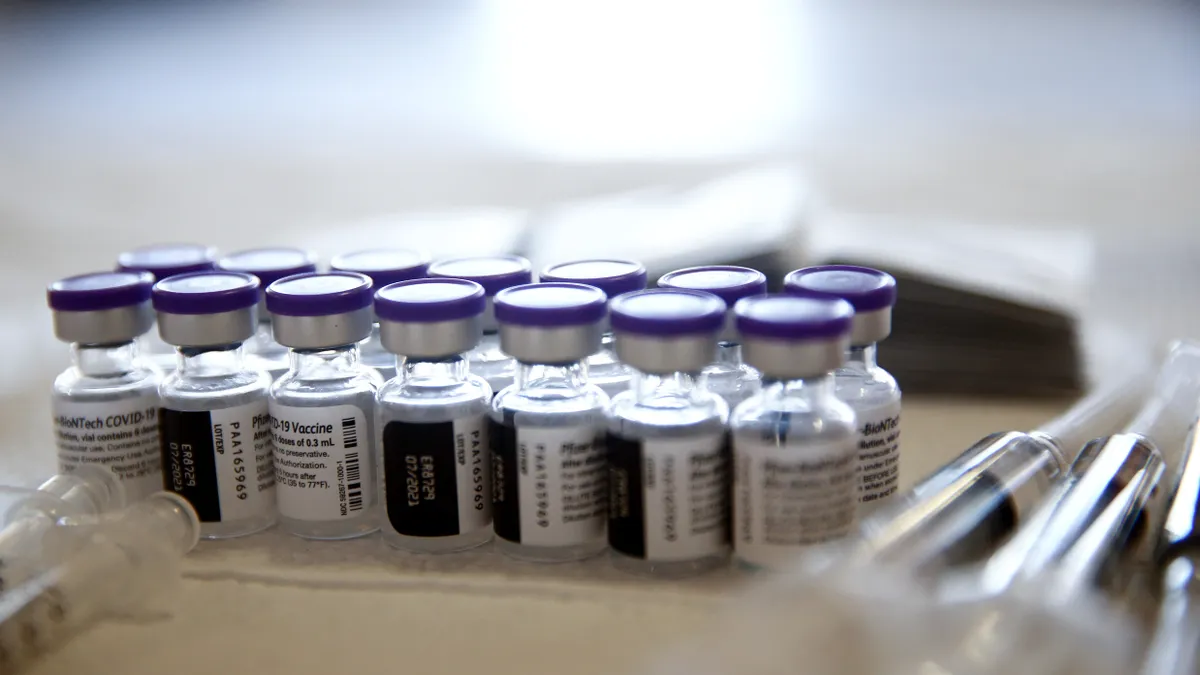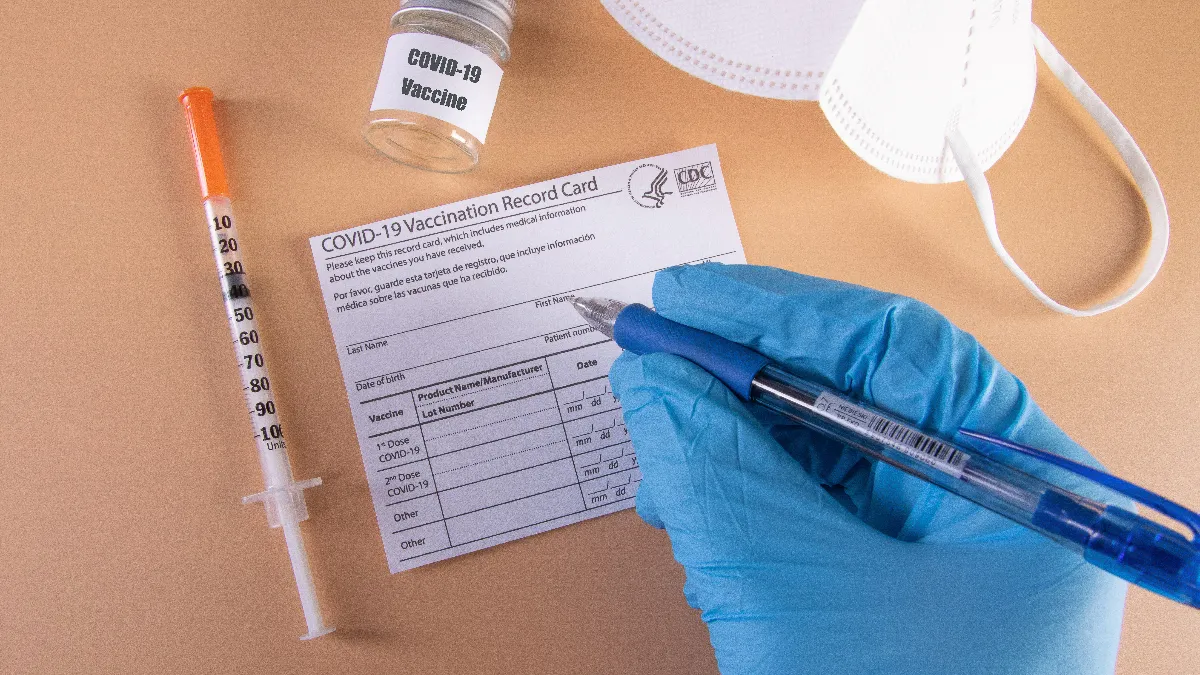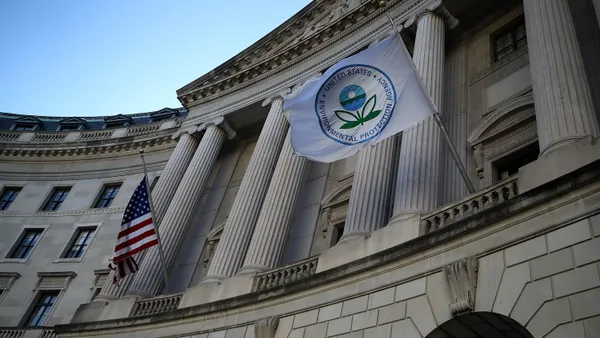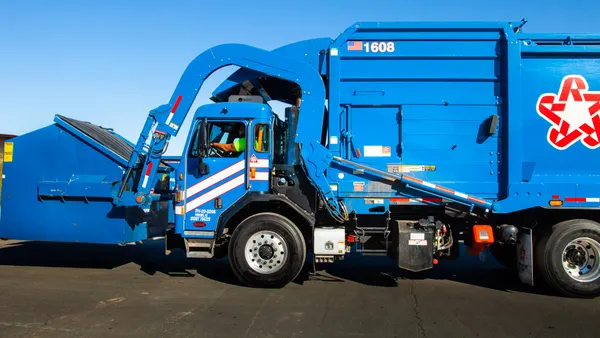U.S. waste and recycling industry employers are largely not announcing vaccine requirements so far — except at the local government level.
According to data compiled by the National League of Cities, multiple local governments that run elements of their own waste and recycling services are in the process of requiring COVID-19 vaccinations or alternative measures. More policies could be coming, as coronavirus cases spike in many parts of the country due to the delta variant, but sources indicate public- and private-sector employers are weighing how mandates could affect staffing in an already tight labor market.
Yesterday's full authorization of Pfizer's vaccine by the Food and Drug Administration could lead more employers to set mandates; the announcement prompted President Joe Biden to ask more employers to do so. While the Department of Justice issued guidance in July saying emergency-use authorization status didn't prohibit employers from issuing such requirements, there have been legal challenges and state legislative discussions around the topic.
Samantha Monsees, an associate at the law firm Fisher Phillips, said full authorization for Pfizer's vaccine essentially makes those state policies moot and predicted that "we're going to see an uptick in employer-mandated programs." Speaking broadly about multiple industries, Monsees said it has so far been more common for private-sector employers to set these policies than public-sector employers. Concerns about being at a competitive disadvantage may be one factor for employers that have not taken this step.
"There’s certainly a labor shortage, so many employers are hesitant to implement a mandate if they think it’s going to have them lose employees," she said.
In the U.S. waste and recycling industry, private employers have been relatively quiet on the topic. The National Waste & Recycling Association recently announced a vaccination requirement for its own employees and encouraged others in the industry to get vaccinated as well. On Aug. 24, the group sent a letter to state governors asking that "every state, county, and municipality encourage or require their workers, especially their municipal solid waste staff, to be vaccinated." Public-sector waste leaders are generally enacting citywide vaccination or testing policies local elected officials have set.
Based on the NLC's COVID-19 local action tracker, public-sector waste and recycling workers in major cities including New York; Los Angeles; Philadelphia; Washington, D.C.; Denver; Raleigh, North Carolina; and Dayton, Ohio will fall under such policies. In Virginia, the local governments of Hampton, Newport News, Norfolk, Portsmouth, Suffolk and Williamsburg — which all handle their own waste or recycling services in some form — have also teamed up to require testing for unvaccinated employees.
New York will require city workers to provide one-time proof of vaccine or do weekly testing as of Sept. 13. Belinda Mager, director of communications for the city's Department of Sanitation, confirmed that this includes the agency's workforce and said all new employees must be vaccinated. That will apply to an estimated 700 workers in the process of being hired.
"The Department of Sanitation recommends that all eligible adults be fully vaccinated. To that end, we have been sharing information on the benefits of the vaccines, including information about how to obtain the vaccines, with our employees. Outreach staff have visited, and will continue to visit, our garages, and we are hosting no-appointment-necessary vaccine clinics at some of our garages. The vaccine clinics are also open to the family of our workers, too," Mager said via email, adding that the city's $100 prepaid debit card incentive is available to anyone who gets a vaccine. Employees who received shots last week were also eligible for tickets to the Homecoming Concert in Central Park.
DSNY did not have data available on how many employees are currently vaccinated. The New York Times recently reported the city's mandate was an unwelcome surprise for the collection workers' union, as some employees do not want to get the shot. Solid Waste Association of North America CEO David Biderman said via email that he's heard the city mandate is "not popular among the rank and file at DSNY."
Vaccination-rate data for waste and recycling workers was similarly unavailable elsewhere, but representatives from relevant agencies in Philadelphia, Denver and Raleigh confirmed that each local government's policy also applied to their waste and recycling workforces.
Existing or new Philadelphia employees must show proof of vaccination by Sept. 1; those who don't will have to wear a cloth mask over a disposable or surgical mask at all times on the job. Keisha McCarty-Skelton, communications director for the city's Streets Department, said via email that "employees will earn four hours of special compensatory time once they provide proof of vaccination."
Employees in Denver have until Sept. 30 to verify their vaccination status. Nancy Kuhn, communications director for Denver's Department of Transportation & Infrastructure, said that "vaccination for COVID-19 is now a mandate and condition of employment in the City and County of Denver."
In Raleigh, city workers must provide proof of vaccination by Sept. 17 or do weekly testing until local positivity rates and transmission drop below a certain level. A spokesperson said "the city is offering $250 and two additional days of paid leave for all employees who get vaccinated."
Those who choose not to get vaccinated may still represent a sizable contingent of the workforce. According to the latest federal data, 62.5% of people over the age of 18 are now fully vaccinated, and 73.1% have received at least one dose.
Monsees said local government employers with vaccination or testing requirements should be ready to field possible exemption requests.
“There’s legal risks, of course, because any time you mandate a vaccine, you need to keep in mind reasonable accommodations under both the [Americans with Disabilities Act and Title VII of the Civil Rights Act], she said. While Monsees said this process may seem intimidating, it doesn't have to be, she added, noting that most local governments will have human resources departments ready to help.
Monsees said employers are allowed to ask for verification of exemptions, such as a medical note or further proof that a religious belief is sincerely held. While employees could potentially raise similar exemption requests for testing requirements in lieu of vaccination, she said employers are "starting to push back on that quite a bit." Monsees also recommended being ready for questions from employees about taking time off to receive vaccines and potentially recovering from side effects. And employers should review language in collective bargaining agreements for unionized employees, she said.
SWANA and the Municipal Waste Management Association said vaccine policy hasn't been a primary topic among public-sector members recently. Similar to what trade groups said last week, MWMA also said COVID-19 has not been recently reported by its members as a rising issue in labor availability, beyond existing conditions.
While stories have been coming in from different parts of the country about the virus playing an increased role in staff absences and collection service disruptions, public-sector representatives from New York, Denver and Raleigh said that was not currently the case for them.
Philadelphia's Streets Department "has experienced new COVID-19 positive cases at its field sites," said McCarty-Skelton. "While not yet significant at this time, this does represent a sudden increase in case numbers relative to earlier this summer."
This story was updated after publication to include NWRA's subsequent announcement on public sector vaccination policies.


